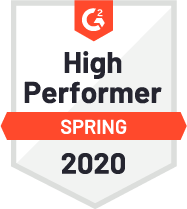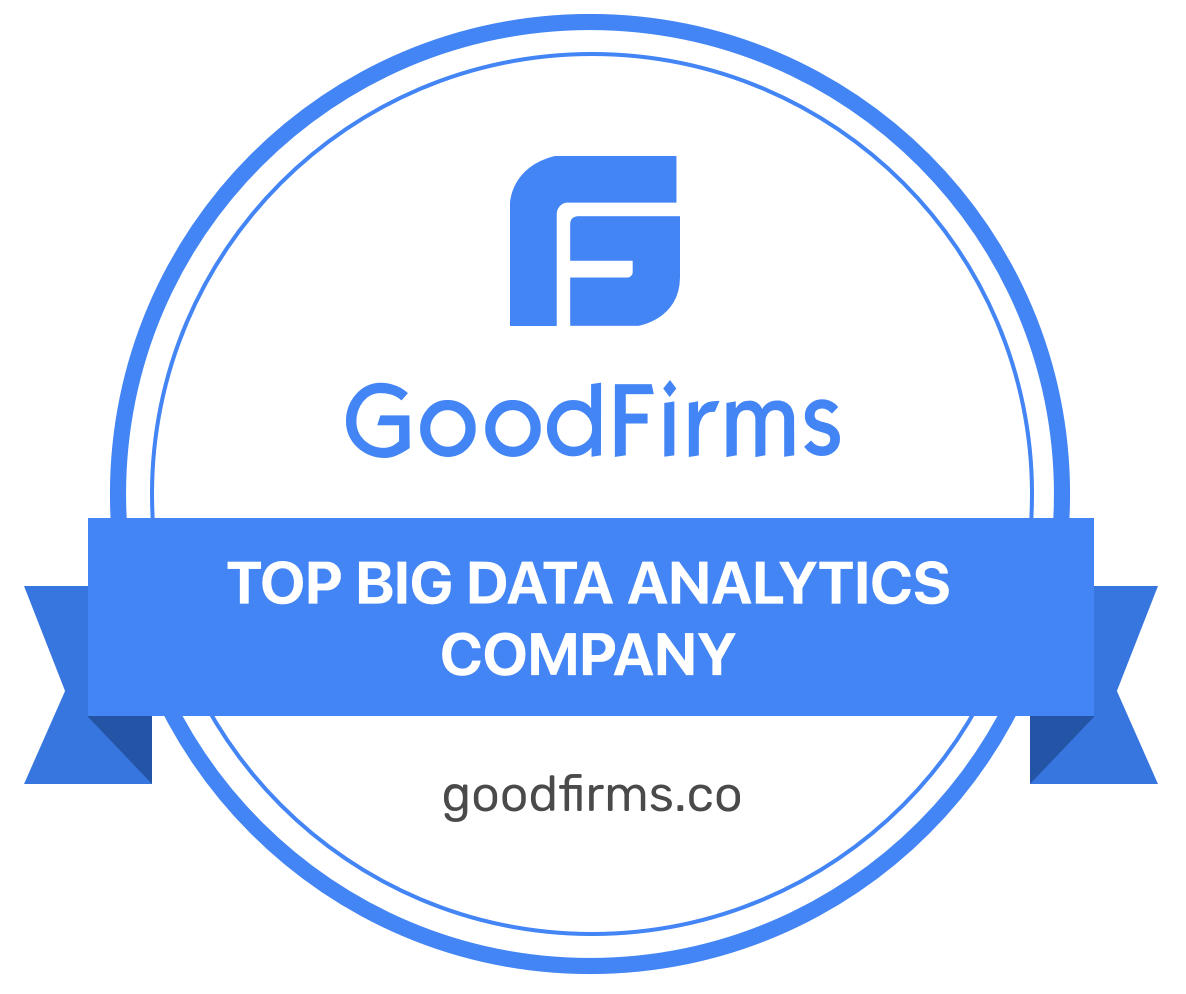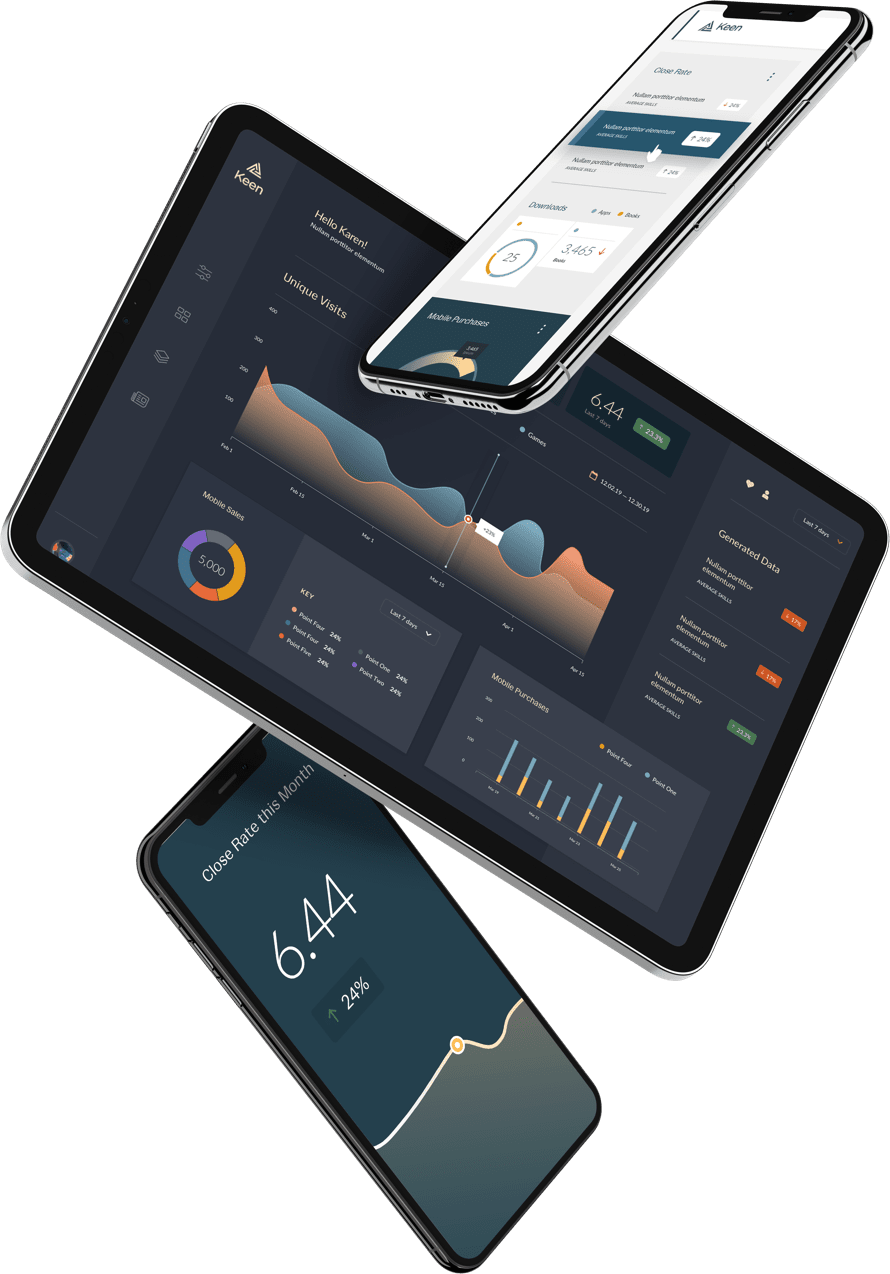Last week I attended SIGNAL, the developer conference by Twilio, with the Keen IO team. I’m happy to say that Twilio has figured out the art of conferences.
Developer conferences are a weird thing. They are a mystical form of art consisting of education, social interaction, and celebration. Some are amazing, others are just good, and some gain whispers across sponsors for how bad they are yet somehow still manage to happen every year.
I was impressed by how Twilio created a conference for everyone, and as a developer I felt right at home.
Why was SIGNAL awesome?
I could talk about a lot of different things: the live coding, great conversations, hackable badges, generally awesome talks around communication and code that were relevant to anyone, and much more. But I want to focus on two ideas that I saw a lot of at the conference:
- Code is creative
- How does this relate to APIs’ role in this rapidly changing world?
These were ideas that Jeff Lawson, CEO and co-founder, brought up very early on:
As Lawson said, the Hollywood narrative of a “hacker” is broken. It ignores that there is more than just math to coding. Coding is an art. It wasn’t just all talk too. I continually saw it in talks at the conference.
Code is creative
It was really hard to pick just a few talks that I thought highlighted how code is creative, but here’s a few of them:
Rachel Simone Weil’s talk “Hertzian Tales: Adventures in “Useless” Hacking”
Rachel really digs into a question that many of us have when we hack and build projects that will never be a “business.” While some of the hacking could be considered “useless,” she touches on the real benefits of creative projects from a critical design lens.
Jenn Schiffer’s talk “What If Twilio Could…” A Tale of Glitch, Twilio, and the Power of Friendship”
If you haven’t gotten to listen to a talk from Jenn, you should! In this talk, Jenn and a friend worked on coming up with a bunch of creative and random ideas based the prompt “What if Twilio Could…” They were able to be more creative by relying on APIs and not worrying about if it was technically possible. Jenn digs into some critical questions, such as, how do we keep the “a-ha moment” going when we have these creative ideas? And how do we work with people while building and learning new things?
Lauren Leto’s talk “At-Home Batphone: The Future of Phone Numbers and Noble MVNOs”
Can you imagine a world where you never need to check your phone and the messages that need to get to you do? Lauren is building for that future with APIs, like Twilio. I love this one quote from the talk:
“When anyone can do it, there’s more chance for creativity.
These last two talks really highlighted interdisciplinary creativity. While I strongly believe all code is interdisciplinary, these two took it to another extreme. Also, I played games and music with 60+ other people in the room while watching these talks, which was freaking awesome!
One other thing about these two talks is that they had nothing to do with Twilio, which I thought was great. Twilio put developers first by choosing to educate attendees on creative and interesting uses of technology over their own API.
How do APIs come into play with this creativity?
As some of the speakers touched on, APIs open up opportunities. When you get to focus on being creative instead of on whether something is technically challenging or possible, what you make with the code is more creative.
Lawson asked questions in the keynote like, how many business problems are there that we could be solving if we had the right APIs first to solve them? And why isn’t that an API?
When dealing with inflexible legacy systems, we don’t always get to solve the most creative problems. APIs allow us to apply our creative energy on a whole new set of problems waiting to be solved.
Lawson also asked, “How big can this economy get?” This really turns into a question for developers. When we are creative, what are the limits with building with APIs? At Keen IO, we are still pushing those limits today while we explore the possibilities that are part of an Unstoppable API Era.
It is common to say that software is eating the world, but in many ways APIs are eating the world.
Our own API stories
Many of us have our own API stories. Suz Hinton mentioned in her talk about immersive experiences with Chat Bots +IRL Bots that many of us, including herself, have a “Twilio Story.” This idea came up constantly at the conference.
For example, my own “Twilio Story” is that the Twilio API Docs helped me get interested in web development. Previously, I had been writing Java and C++ programs that were completely disconnected from the Internet. The Twilio API Docs helped me setup my first web server, a Python Flask server, in order to send a text message for a project I was working on. This was a life changing experience for me.
Paul Fenwick’s first Hello World experience with Twilio turned into building the National Rick Astley Hotline and then he gave an awesome talk about it at Signal! Basically, he knew nothing about the technology, but because the APIs and technology existed, he was able to focus on the creative use case first.
A conference for everyone
Lastly, the last part of conference is usually the “celebration.” Twilio calls their conference after party, $bash. (Feel free to insert your own bash jokes here.) I’d say that Twilio sprinkled celebration into a lot of parts of the conference, but this is where it was at its greatest.
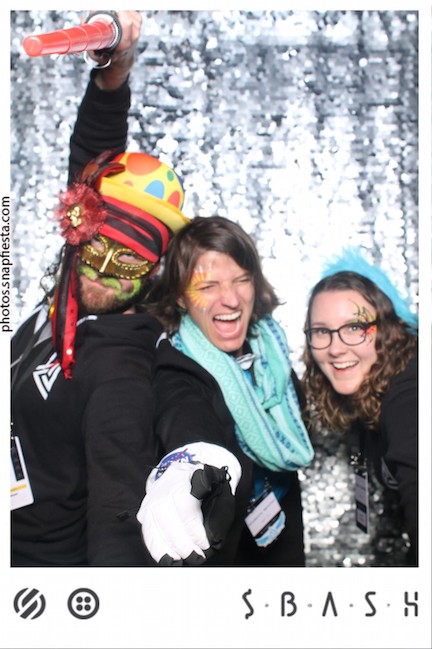
I was definitely unsure about this celebration though. When someone tells you that there are going to be “coding challenges” and “puzzles” in a dark environment with lasers, loud music, and alcohol in a warehouse on a pier in San Francisco, you can’t blame me for being slightly pessimistic about how “fun” it will be.
I quickly realized that there was really something for anyone at $bash. If “coding challenges” weren’t your thing, there was half a dozen other things you could do instead. That’s why $bash was special to me. As an introvert, who really likes conferences yet is exhausted at the end of them, after parties aren’t always my idea of “fun.” It even got two of our co-founders to stick around and try out the coding challenges.
As Kyle Wild, our CEO, said:
“Signal was like a case study in how to make a conference for introverts. I ❤❤❤❤ it and want to go back every year.”
Congrats on finding the right mixture of mystical conference art, Twilio! See you next year.
P.S. At SIGNAL, we also announced our partnership with Twilio to provide Contact Center Analytics. Check out our blog post about analytics with the TaskRouter API:
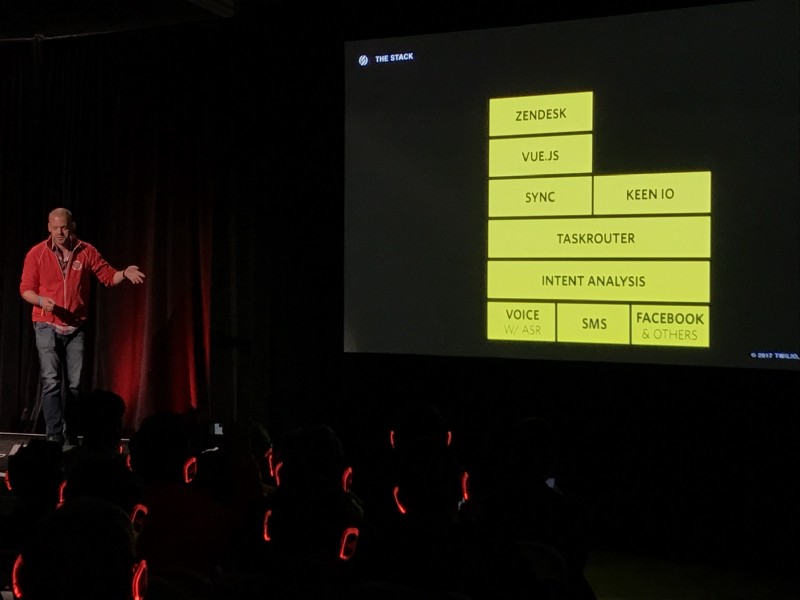 Twilio’s Al Cook using multiple APIs including TaskRouter API and Keen IO to build Contact Center Analytics, see the talk here.
Twilio’s Al Cook using multiple APIs including TaskRouter API and Keen IO to build Contact Center Analytics, see the talk here.P.P.S. I highly recommend going to check out some of the talks I shared. If you loved those, here are a few more favorites:
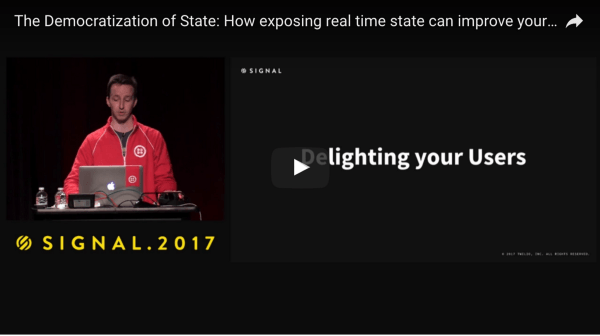
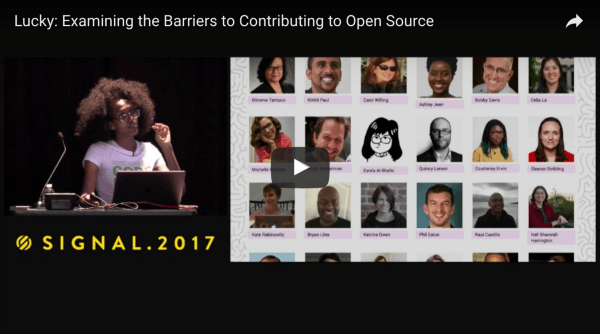
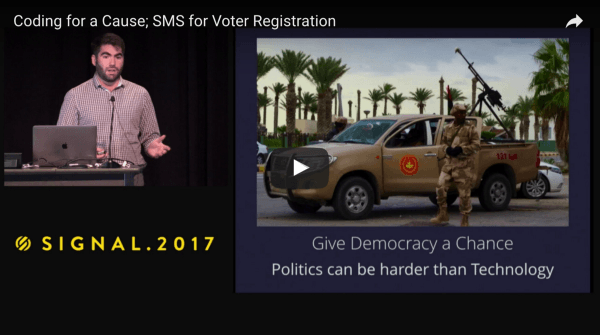
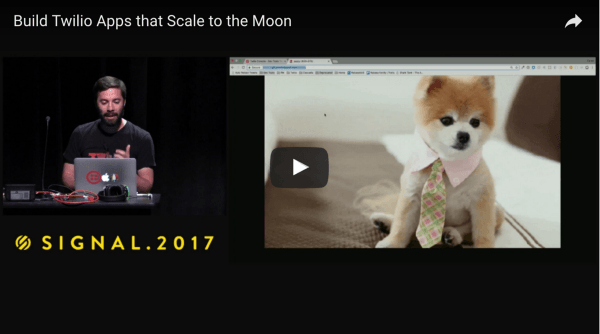
If you think “Code is Creative” or the talks that were included are awesome, consider clicking the ❤ below!
